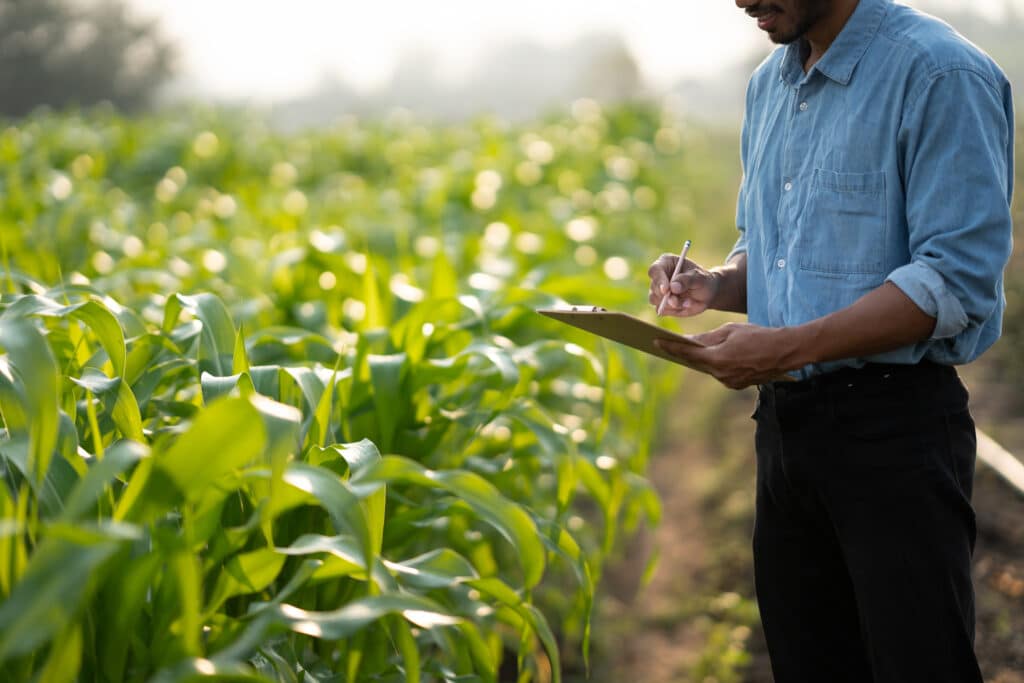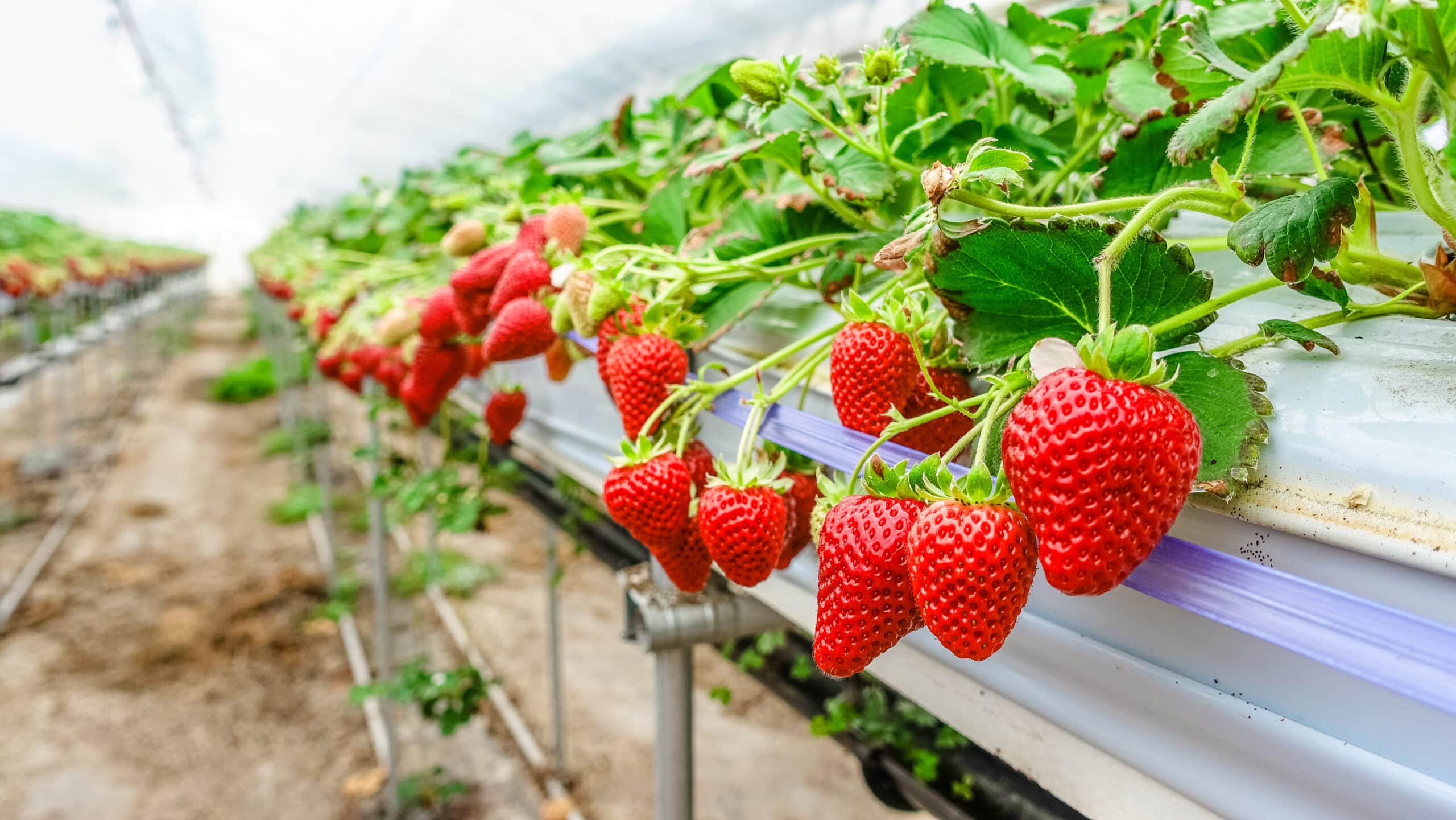Future Food Forum 2023: Five Key Takeaways
After two days of eye-opening discussions and collaboration, the 2023 Future Food Forum has concluded. Organized by the UAE Food and Beverage Business Group, the 5th annual event was held in Dubai and saw over 60 key agrifood industry leaders come together to speak on the topic of food security in the UAE and suggest strategic and sustainable solutions to food and beverage supply chain challenges across the MENA region.
The first day of the event saw a panel of experts tackle the topic of “Boosting food security and driving environmental sustainability”. Speakers discussed key regional challenges such as self-sufficiency, sustainability, food security, overseas investment, and consumer trends. Here are some of the key takeaways from the discussion and the event:
The need for self-sufficiency
One of the key discussions at the Future Food Forum revolved around the push for self-sufficiency in GCC food and agriculture. The lack of arable land in these regions makes traditional farming methods unviable, and has led to import dependency in many cases. Many experts warned that this leaves the region vulnerable to supply chain disruptions, with recent geopolitical events such as the Ukraine conflict underscoring the need for resilience in the food and beverage sector. Panellists were in agreement that the UAE and other Middle Eastern nations must invest further in local production and prioritize domestic markets.
Agtech
Much of the debate centred around the viability of agtech solutions (such as CEA) in addressing self-sufficiency, bolstering local production, and contributing to food security in the UAE. While government support and regional investment in this sector is accelerating quickly, many challenges remain. CEA and vertical farming can supplement supply chains, but it cannot fully replace traditional farming. High energy costs limit it’s ability to scale, production is limited to leafy greens, and many staple crops, such as rice, cannot be cultivated in this manner.
Utilizing the right business models and technologies may make CEA viable, but many panellists agreed that further investment in agtech R&D is necessary to grow the sector. Ongoing development of technology will increase both the operating efficiency and the variety of produce that can be grown in these facilities and can play a significant role in improving self-sufficiency within the GCC. In the medium-term, though, basic commodity demands will continue to be met through imports.
Strategic Investments
The Future Food Forum event facilitated further discussion on the role of strategic partnerships and investment overseas as a way to improve UAE food security. Investing in companies that produce staple crops such as rice grains, sugar or edible oils can help to strengthen and diversify food supply for GCC nations who cannot produce such crops locally.
Several successful examples of this were identified, including a number of highly strategic investments by ADQ and SALIC and the Agricultural Development Fund of Saudi Arabia (ADF), who have provided significant capital investment support to private investors as well as incentives for investors who direct their exports towards the KSA market. This should ensure a diversified supply, as well as commercial success over time.
Trade relations
Strengthening trade relations was identified as a key strategy to improve overseas investments and secure supply. Recent cross-border collaboration such as the India-UAE Comprehensive Economic Partnership Agreement (CEPA) were cited as examples of successful initiatives. The growing strategic importance of Africa (both as consumers and producers) was also heavily discussed, with many experts noting that investment in African infrastructure and logistical systems can boost agricultural productivity and food security, both locally and internationally.
Road Map
During the final session of the 2023 Future Food Forum, the UAE’s minister of economy, H.E. Abdulla Bin Touq, unveiled perhaps the biggest takeaway of the event; a strategic roadmap to achieving sustainability, establishing self-sufficiency, and strengthening the UAE’s presence within the global agrifood industry. According to Bin Touq, the 7 core pillars of the roadmap will increase the agrifood sector’s GDP contribution by 10 billion Dirhams (US$2.74bn) and create 20,000 jobs in the UAE. The new strategy will contribute to the UAE’s national target of achieving 7% AGR and aspirations to double the economy by 2031. The 7 pillars of the road map are as follows:
- Identifying and nurturing the next generation of talent and innovators
- Revamping agrifood regulations to ensure that UAE achieve the highest international standards and global recognition.
- Instilling a “UAE First” culture across the entire food value chain, prioritizing domestic production, reducing import overreliance, and boosting local businesses.
- Providing additional funding to actors in the industry to foster growth and innovation
- Improved research and development packages.
- Expanding the UAE’s reach internationally, creating pathways for agribusinesses to access global markets.
- Supporting the next generation of UAE farmers through agtech funding, training programs, modernization efforts, and support systems to prepare for future challenges.
Our contribution to the Future Food Forum and GCC prosperity
At Farrelly Mitchell, we believe that the innovative ideas on show at the 2023 Future Food Forum are indicative of the rapid progress being made in the GCC food and beverage sector and we are privileged to have contributed to the event.
The shift toward supply chain resilience and sustainability in the Middle East is crucial, and we remain as committed as ever to supporting governments, DFI’s, and food and agribusinesses in achieving their long-term goals in this area. We offer tailored solutions to agrifood actors in the GCC and MENA region, providing key insights into agtech, food security, ESG & sustainability, and much more.














